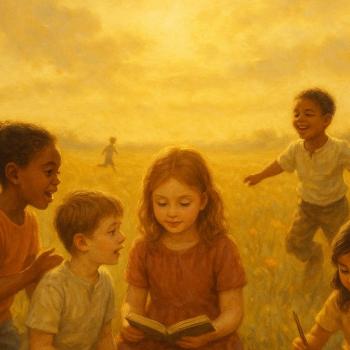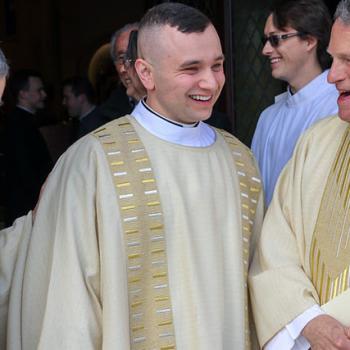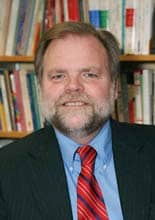The Fourth of July is one of my favorite holidays. From my earliest childhood, I have loved the parades, outdoor grilling, and fireworks. I never miss the Fourth of July Concert on the Capitol Mall on PBS. But more than that, I love the marching bands and music of the day—"The Star Spangled Banner," "God Bless America," and anything by John Philip Souza. It is a day to celebrate our land and its freedoms.
Still I'm not one to join God and country too closely. I believe that theocracy is dangerous for nations and religions alike. But these national holidays—and not just the U.S. holidays—bring out our deepest feelings of gratitude and love for our land, and hopefulness. They are not just celebrations of geography or opportunities for flag-waving; they are also occasions for reflection and even confession of the dissonance between reality and aspiration in our national life.
All countries are imperfect and ambiguous and the U.S. is no exception. We have high ideals and often dismal realities. We have often responded too slowly to the challenges of the moral arc of history. We have proclaimed the equality of humankind and defined some persons as non-human, unworthy of self-determination, equality, or loving relationships. We have affirmed the quest for life, liberty, and the pursuit of happiness and condemned some persons, based on the accidents of economics, ethnicity, or sexuality, to lives of misery, duplicity, and limitation.
Some preachers and politicians say the solution to America's problems is getting back to God. They believe that a National Day of Prayer will bring America back to its glory days. While I affirm the importance of values and spirituality in national wellbeing, I believe that there is a more important question: What kind of God do we invoke when we ponder the life of a nation—every nation—and the destiny of a planet? In raising the connection between our images of God and our national policies, I'm not suggesting we return to a theocracy. I cherish our pluralism and the implied democracy of revelation, even among atheists and agnostics. But, for those of us who call ourselves people of faith, how we understand God may be a matter of life and death, and may be a formative factor in shaping foreign, legal, and economic policy.
As I reflect on our religious history, I believe that the unofficial god of the U.S. has been the god of manifest destiny, the Calvinist god, who guided our pilgrim parents across the ocean, inspired them to settle the land from sea to shining sea, and gave them the right to destroy its earliest inhabitants. This god "chose" America for a destiny, making us—like the children of Israel—exceptional among the nations. This god gave us this land just as God gave Canaan to the Hebrews.
While such a view has been motivational in terms of national expansion, leading to the formation of a great country we have today, it has not always been inspirational or ethical; it has led to slavery, genocide, and chauvinism. Many national political and religious leaders still celebrate this "almighty" god, who favors the U.S. among peoples, giving us the right to do what we please with "our" resources, even when they fall outside our nation's borders.
I am uncertain if our political leaders will embrace alternatives to the god of manifest destiny. Versions of American exceptionalism show up in virtually every politician's speech, sometimes seriously, often gratuitously. But, let me suggest a vision of God that allows us to join self-affirmation with humility and the affirmation of the giftedness of other nations.
Christian doctrine affirms the omnipresence of God, but seldom explores the lived and practical meaning of this doctrine. To say that God is omnipresent is to assert that God is present and acting in every person and situation. From this perspective, there are no boundaries either to love or revelation, that is, if we affirm that the God we worship reflects the life and teaching of Jesus. For Jesus, love was the primary spiritual principle. God's love included our enemies as well as our fellow citizens; it embraced the poor as well as the wealthy, and the forgotten as well as the privileged. Accordingly, God's presence and action are to be understood primarily in terms of love. The only power, from this perspective, that God embodies is loving power and this must ultimately include everyone, not just a select few. There are no outsiders to God's love, and this includes nations as well as individuals. God loves the U.S., and God loves every other people.





